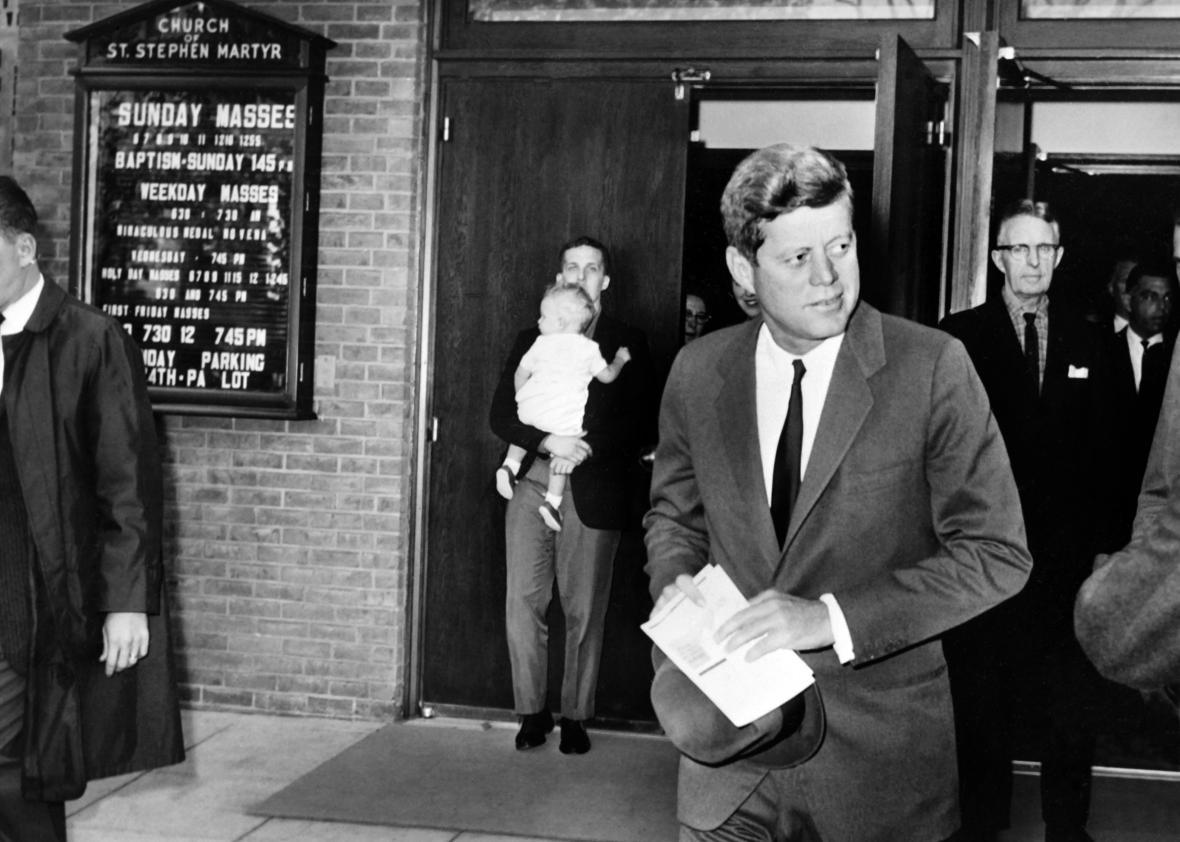Conspiracy theorists were rejoicing Saturday after President Donald Trump said he will give the green light to release thousands of long-declassified files related to the assassination of President John F. Kennedy. The National Archives was already due to release the documents on Oct. 26 but recent reports claimed that Trump was under pressure from some in the intelligence community to leave at least a few of the documents under lock and key.
In the tweet announcing his decision, Trump left himself a little bit of wiggle room, saying that the move was “subject to the receipt of further information.” He did not specify what that information could be that would convince him not to release the files. It’s also unclear from the tweet whether the files will be released in full or whether there will be redactions.
Recent reports about the upcoming declassification noted that Trump was under pressure from some government agencies to not release some of the documents. Specifically, the CIA had allegedly been pressuring Trump “to block the release of some of the assassination documents on national security grounds, possibly to protect CIA tradecraft and the identity of agency informants who might still be alive,” Politico reported this week. The concern seems to particularly be regarding documents about the assassination that were created in the 1990s that could expose recent intelligence and law-enforcement operations.
Trump also apparently received pressure from the other side. Roger Stone told conspiracy theorist Alex Jones of Infowars that he had been urging the president to release all of the documents. Stone, a longtime Trump confidante, told Jones that he believed the documents would shed “very bad light on the deep state—the same characters trying to take down our president right now.” Stone celebrated the decision on Twitter: “Yes ! victory !” Stone was hardly alone though as some academics also celebrated the move. Political scientist Larry Sabato took to Twitter, for example, to say it was “the correct decision.”
The declassification involves around 3,100 files that include tens of thousands of pages. There are also 30,000 pages that have only been partially released. The new documents are seen as potentially very interesting, even if they’re not expected to contain any major bombshells. “There’s going to be no smoking gun in there,” Gerald Posner, the author of Case Closed: Lee Harvey Oswald and the Assassination of JFK told CNN. “But anybody who thinks this is going to turn the case on its head and suddenly show that there were three or four shooters at Dealey Plaza—it’s not the case.”
Just because there are no expected bombshells though it doesn’t mean scholars aren’t excited to see the documents.“There’s no Star Chamber report,” Rex Bradford, president of the Mary Ferrell Foundation, told the Dallas Morning News. But “there are documents I am looking forward to seeing. … It’s been peeling an onion for five decades. The bulk will be pretty impressive, if it happens.”
The documents are scheduled for release as part of the JFK Assassination Records Collection Act that Congress approved in 1992 in part due to the interest on the issue sparked by Oliver Stone’s movie on the former president. The Washington Post explains what could be particularly interesting about the documents:
The 3,100 new files are potentially some of the most intriguing because many of them concern Oswald’s six-day trip to Mexico City in September 1963, about two months before the Nov. 22 assassination. Oswald himself was shot to death by nightclub owner Jack Ruby on Nov. 24. They believe some of the papers might show the extent to which the CIA, which had been monitoring Oswald’s movements in Mexico, knew the magnitude of Oswald’s overtures to the Cubans and Soviets.
“I’ve always considered the Mexico City trip the hidden chapter of the assassination. A lot of histories gloss right past this period,” said Philip Shenon, a former New York Times reporter and the author of a book on the Warren Commission, the congressional body that investigated Kennedy’s killing. “Oswald was meeting with Soviet spies and Cuban spies, and the CIA and FBI had him under aggressive surveillance. Didn’t the FBI and CIA have plenty of evidence that he was a threat before the assassination? If they had acted on that evidence, maybe it wouldn’t have taken place. These agencies could be afraid that if the documents all get released, their incompetence and bungling could be exposed. They knew about the danger of Oswald, but didn’t alert Washington.”
